Inflammation is the body’s natural defense mechanism that promotes tissue repair, eliminates pathogens, and prevents the spread of infection. Acute inflammation is a short-lived condition that helps activate the immune response to fight off harmful stimuli and minimize damage.
This article explains how acute inflammation manifests and delves into different types, symptoms, causes, and treatment methods.

Acute inflammation is the body’s adaptive response to an immediate injury, infection, or tissue damage characterized by redness, swelling, and pain. It is the first line of defense against harmful stimuli, infectious microorganisms, and chemical irritants.
It occurs when the immune system stimulates the release of pro-inflammatory cytokines that rush to the injury site to initiate healing.
Acute inflammation is the body’s beneficial, protective mechanism that typically subsides within a few days or when the perceived threat is over.
In contrast, chronic inflammation is a prolonged inflammatory response that may last weeks, months, or even years. It occurs when the immune cells mistakenly label healthy tissue or harmless substances as a threat, often leading to long-term or autoimmune diseases, such as arthritis, heart disease, and diabetes.
Note: Learn more about the differences between acute and chronic inflammation and how to cope with their symptoms.
Acute inflammation takes different pathological forms depending on the severity of the tissue reaction, inflammatory factors, and the location of the inflammation.
This mild type quickly subsides and is characterized by clear, serum-like fluid discharge. It affects the serous tissues (e.g., mucous membrane, outer lining, and loose connective tissue) of the lungs, heart, and organs within the abdomen.
This type involves the deposition of fibrin, an insoluble protein that creates a thick, sticky fluid. It occurs in more severe conditions and affects the lining of body cavities, such as the pericardium (the heart’s protective sac), meninges (the layer surrounding the brain and the spinal cord), and pleura (the lungs’ protective covering).
Catarrh is a build-up of mucus in the respiratory tract, typically in the nose, sinuses, or throat. Colds, sinusitis, and allergies are common triggers. Catarrhal inflammation is mild and usually clears up by itself. It is characterized by a runny or blocked nose, persistent cough, sore throat, and excess phlegm.
Purulent (suppurative) inflammation is characterized by the production of a creamy, pus-like fluid consisting of neutrophils, dead cells, and tissue debris. Pyogenic bacteria (e.g., staphylococci) commonly cause purulent abscesses (i.e., swollen, pus-filled lumps such as pustules) that may affect the skin, muscle tissue, or internal organs.
Severe infections or physical trauma may trigger this type of inflammation, characterized by blood vessel damage, bleeding within the inflamed tissue, and a profusion of erythrocytes (red blood cells) in the discharge. A traumatic injury can lead to hemorrhagic shock, which activates an acute inflammatory response that may be life-threatening.
The most common acute inflammatory health conditions are the following:
Acute inflammation is marked by the following five symptoms:
Internal or external factors can trigger an acute inflammatory response.
Exogenous inducers (external stimuli) come from outside the body, such as bacteria, viruses, parasites, fungi, chemical irritants, toxins, cuts, scrapes, burns, allergens, and foreign bodies.
Endogenous inducers (internal stimuli) come from the body, such as autoimmune and allergic reactions or dead, damaged, stressed, or malfunctioning tissue.
Acute inflammation is a natural and necessary response of the body's immune system to injury or infection, designed to protect and heal. While it's not typically possible or advisable to prevent acute inflammation entirely, as it's a critical part of the healing process, there are ways to reduce the risk of excessive or unnecessary acute inflammation and to manage it effectively.
The following practices will help you manage acute inflammation and heal quickly:
A combination of physical examination, diagnostic testing, and clinical evaluation helps to identify acute inflammation.
After discussing your medical history, recent injuries, and current medication, the doctor will perform a routine examination to look for the five symptoms of acute inflammation: redness, swelling, heat, pain, and loss of function. Depending on the symptoms' type and severity, you may have to undergo additional testing, including blood tests, allergy tests, ultrasound, CT scans, MRI, and biopsy.
Blood test results may indicate elevated inflammatory markers, such as C-reactive protein (CRP), erythrocyte sedimentation rate (ESR), and plasma viscosity (PV). Once all the results are complete, the doctor will diagnose the condition and prescribe the treatment.
Note: Read more about food allergy testing.
You can manage, reverse, or cure acute inflammation, especially if you react early. Treatment focuses on addressing the underlying cause and may include rest, medication, and other medical interventions.
Seeking prompt medical attention will help prevent complications and reduce the risk of inflammation becoming chronic. Badly diagnosed or improperly treated, acute inflammation can lead to chronic inflammation, which requires long-term treatment and ongoing medical care.

Lifestyle adjustments, medical treatments, and natural remedies will help reduce inflammation, alleviate side effects, and prevent the development of low-grade inflammation.
An anti-inflammatory diet can soothe acute inflammation, calm the nervous system, and fuel the body to fight against harmful stimuli. Foods rich in antioxidants, fiber, and omega-3 fatty acids support immune function and prevent systemic inflammation.
Consume fresh, seasonal whole foods with potent anti-inflammatory qualities, such as berries, leafy greens, nuts and seeds, fatty fish, and herbs (e.g., ginger and turmeric). Avoid pro-inflammatory foods, such as processed food, red meat, trans fats, deep-fried food, refined carbohydrates, artificial sugar, and sugary beverages.
Moderate, low-impact exercises, such as brisk walking or light aerobics, can help manage acute inflammation by promoting circulation, supporting the immune system, and regulating the activity of pro-inflammatory cytokines.
Avoid strenuous, high-intensity workouts during recovery as they may exacerbate the condition and lead to chronic inflammation or a more severe health problem. Balancing exercise and rest will help restore strength and resolve inflammation more effectively.
Research indicates that sleep loss triggers acute inflammation by increasing the activity of inflammatory mediators that regulate the body’s inflammatory response. Poor or insufficient sleep increases the production of pro-inflammatory cytokines, worsening overall health.
During sleep, the body is restored and the immune system is strengthened. Experts recommend between 7 to 9 hours of sleep per night for adults who wish to reduce inflammation and stay healthy.
Dietary, antioxidant-rich supplements help to regulate inflammation and support the immune system. They contain a mixture of natural compounds that inhibit inflammatory pathways and relieve symptoms such as pain, tenderness, redness, and swelling.
The following supplements have potent anti-inflammatory properties that help reduce oxidative stress and support immunity.
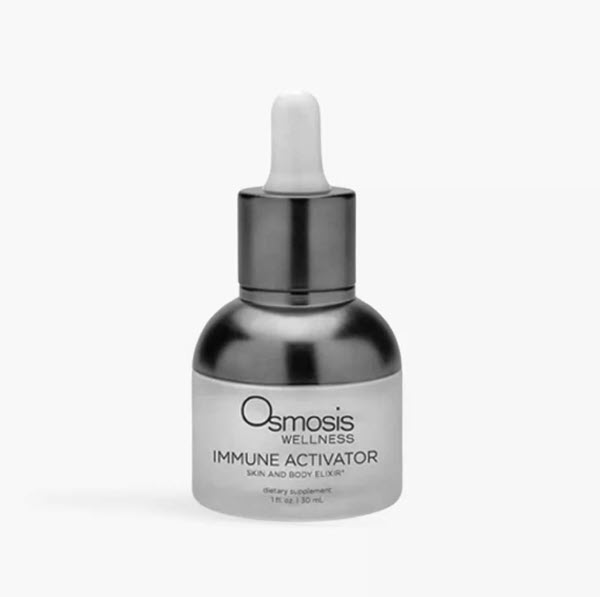
Osmosis MD Immune Activator features a patented, stabilized oxygen molecule that strengthens the immune system. It enhances the immune response, promotes cell repair, and helps decrease hyperpigmentation.
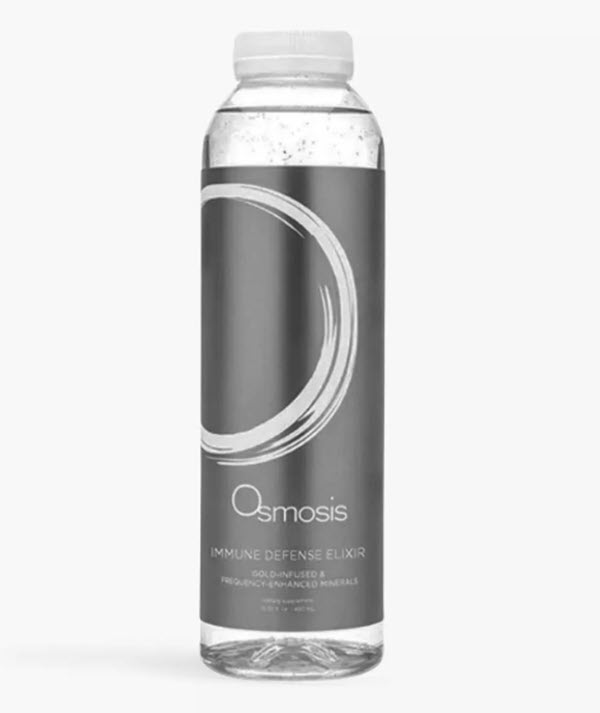
Osmosis MD Immune Defense Elixir boosts immunity and is an excellent ally during cold and flu season. This supplement is enriched with 24-karat gold and colloidal silver that suppress the activities of pathogens, viruses, and toxins.
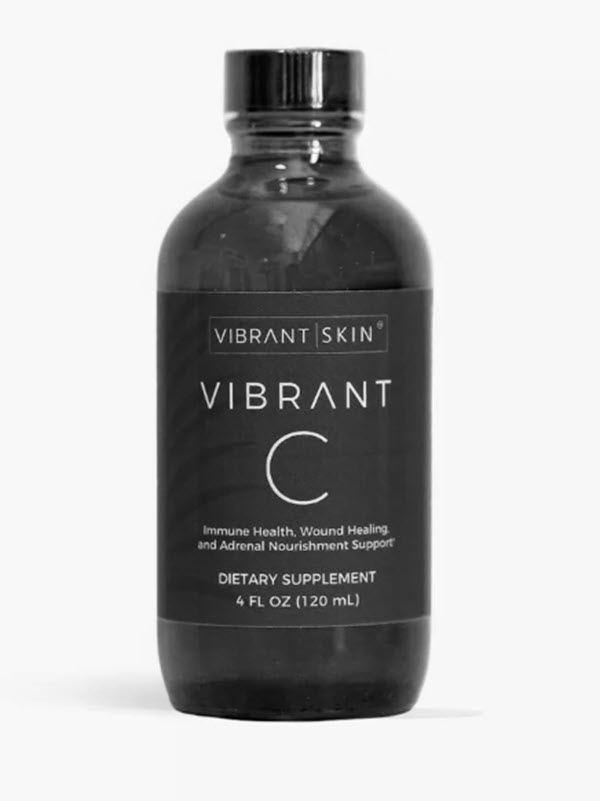
This immune-boosting C vitamin supplement supports adrenal health and promotes wound healing. Its unique formula contains liposomes, which bond quickly with cell membranes to enable fast delivery of their nutrient contents into cells and enhance overall bioavailability.
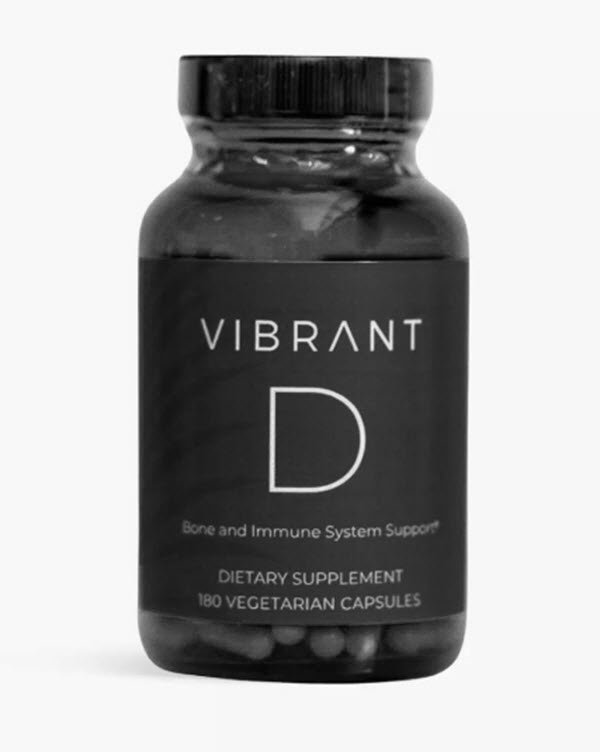
This vitamin D supplement promotes bone and arterial health, reducing the risk of osteoporosis, fractures, and cardiovascular diseases. It strengthens the immune system and helps to protect against infections, including respiratory illnesses like flu and colds. Vitamin D is also vital for mood regulation and helps reduce the risk of anxiety and depression.
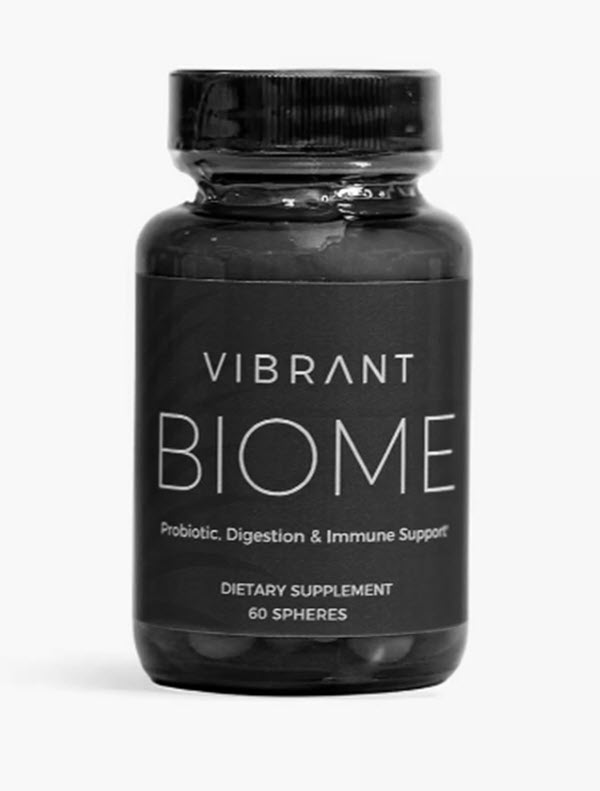
Vibrant Biome provides probiotics for digestion and immune support. This supplement promotes healthy gut flora and aids IG regularity, helping to reduce skin redness and inflammation.
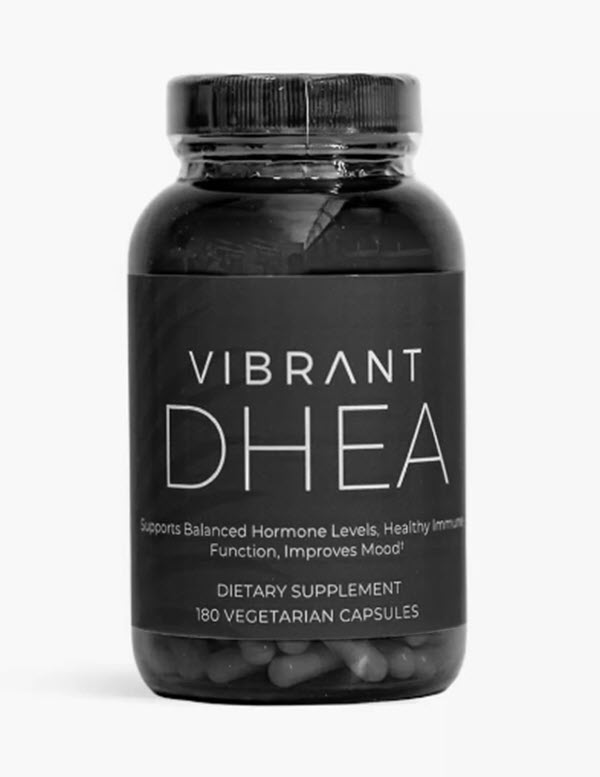
Vibrant DHEA balances hormonal activity, strengthens immune function, and improves mood to support healthy aging, sustained energy, and vitality. It regulates the stress response, supports muscle integrity, and increases fat metabolism, contributing to more strength and resilience.
| *Disclaimer These statements have not been evaluated by the Food and Drug Administration. This product is not intended to diagnose, treat, cure, or prevent any disease. |
IV therapy is the intravenous administration of fluids packed with essential vitamins, minerals, and antioxidants. This treatment effectively boosts the immune system, rehydrates the body, increases energy, and replenishes the depleted nutrient reserves. It bypasses the gastric system and provides an instant supply of nutrients, enabling better absorption and faster recovery after infections, viruses, and colds.
The most effective immune-boosting IV treatments include vitamin C and vitamin D therapies.
Note: You can also try our Immune Boosting Therapy to strengthen your immunity.
Our skin is constantly exposed to various internal and environmental stressors that contribute to skin pollution and skin inflammation, leading to chronic conditions like eczema, rosacea, and acne. Due to increased oxidative stress and inadequate protection, the skin becomes dry, clogged, and prone to irritation.
An anti-inflammatory skincare regimen helps combat free radicals, strengthens the protective barrier, reduces inflammation, and alleviates symptoms, such as redness, patchiness, flakiness, and flare-ups.
Vibrant Vitality Clinic’s skin experts recommend their anti-inflammatory skin products:
Natural remedies have a calming effect and can ease swelling, flushing, and pain. They contain anti-inflammatory compounds that work together to reduce inflammation, relieve joint pain, improve mobility, and boost the immune system.
The following natural remedies have been found to regulate inflammation:
Alcohol and nicotine contain chemicals that trigger and exacerbate acute inflammation by stimulating pro-inflammatory activity and stalling recovery.
Cigarette smoke contains toxins that contribute to oxidative stress and lead to tissue damage, particularly in the lung area. Alcohol consumption disrupts the GI tract’s microbiome, causing bloating, constipation, diarrhea, and IBS symptoms.
Excess body fat, particularly visceral or hormonal belly fat, stimulates pro-inflammatory cytokines that disrupt metabolic balance, contribute to insulin resistance, and increase overall inflammation. Obesity and inflammation create a vicious cycle that makes weight loss more challenging.
Maintain a healthy weight to reduce acute and chronic inflammation and decrease the risk of conditions like heart disease, arthritis, and type 2 diabetes. Use a medical weight loss program to resolve underlying health problems and speed up the process.
Stress affects all aspects of life, impacting sleep, mood, skin quality, and overall health. Stressors can exacerbate acute inflammation and prolong recovery. Luckily, effective stress-relief methods can lower cortisol levels and alleviate symptoms.
Vitamins and supplements for stress can help relieve the tension alongside the following activities:
Note: Learn how stress and inflammation are connected and how reducing stress can alleviate the symptoms.
Acute inflammation is a short-term condition that typically resolves within days with proper treatment and medication. Severe or persistent symptoms may continue for several weeks.
If acute inflammation lasts more than a few weeks or if it recurs, it could signal an underlying medical issue that requires medical attention.
Untreated or misdiagnosed acute inflammation carries the following risks and complications:
Seek immediate medical help if your health condition starts worsening and the symptoms become more severe or repeat frequently.
Schedule an appointment with your healthcare provider if you have an underlying health condition or if you experience the following symptoms:
Acute inflammation is an essential biological process that is designed to heal our body. It triggers the immune system to respond to immediate threats, such as pathogens, allergens, and other harmful stimuli. However, left untreated, it may worsen or develop into a chronic condition. Learning to manage and reduce inflammation on time is vital if you wish to address potential underlying medical issues and stay healthy.
Contact our Vibrant Vitality Clinic staff for more information about this topic.




4325 E Indian School Rd, Suite 130
Phoenix, AZ 85018
United States
(480) 422-2058
info@vibrantvitalityclinic.com
Monday - Friday: 9:00 am - 6:00 pm
Saturday: 9:00 am - 3:00 pm
Sunday: Closed
